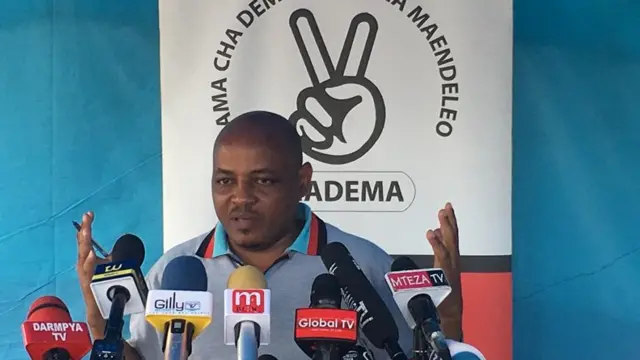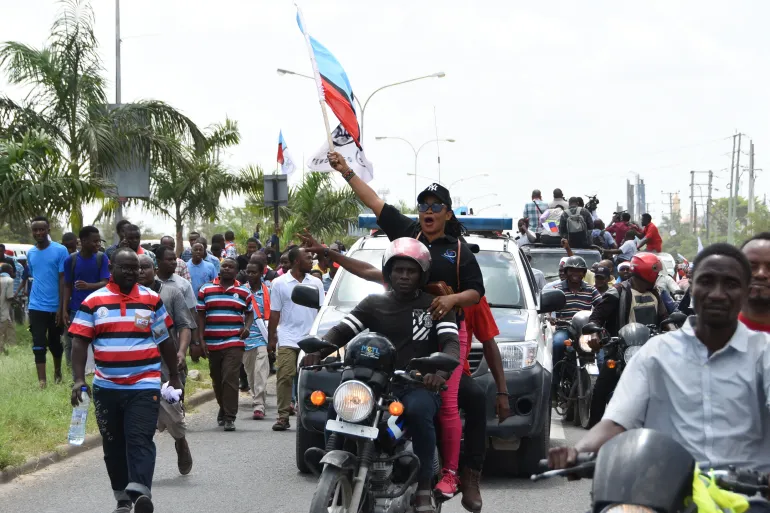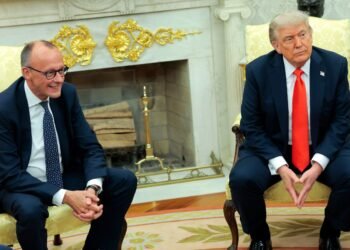In a sweeping crackdown on dissent, Tanzanian police have detained key opposition leaders and rounded up hundreds of supporters, effectively halting a planned rally in the southwestern city of Mbeya.
The arrests mark a significant escalation in the government’s suppression of political opposition, raising concerns about the state of democracy in the East African nation.
Among those detained were leaders of the opposition Chadema party, including the prominent former presidential candidate Tundu Lissu.
The arrests took place on Monday, August 12, as Chadema prepared to hold a rally to mark International Youth Day. The police had previously banned the event, citing allegations of planned violence, a claim that the opposition has vehemently denied.
The arrests were confirmed by Chadema’s director of communications and foreign affairs, John Mrema, who took to social media platform X to announce the news.
“Breaking news! The Mbeya Police have arrested all the leaders who were in the offices of Chadema in the Nyassa region, including the Hon. Tundu Lissu, the Hon. John Mnyika, the Hon. Joseph Mbilinyi, and the leaders of the Youth Council and those of the party.”
John Mrema
Mrema also revealed that around 500 youth supporters were detained while en route to the event.

The crackdown has drawn widespread condemnation from both local and international observers, who view it as a troubling sign of the Tanzanian government’s increasingly authoritarian approach.
Chadema leader Freeman Mbowe was quick to denounce the arrests, calling for the “immediate and unconditional release” of his deputy, Lissu, and other detained youth leaders.
“I strongly condemn the arrest of my fellow party members. This is a clear attempt to stifle democratic expression and intimidate those who dare to speak out against the government,” Mbowe said.
Opposition Crackdown Threatens Democratic Gains
The latest incident comes at a time when Tanzania is gearing up for its presidential and parliamentary elections in 2025.
Critics argue that the arrests of opposition figures provide further evidence that democratic progress in Tanzania is stalling.
In recent months, Chadema and other opposition groups have been staging protests to demand that the government address a range of issues, including controversial legislation, rising living costs, and the need for independent oversight of the electoral process.
The government’s response has been heavy-handed. Just a day before the rally, police announced a ban on the Chadema youth gathering, accusing the party of planning violent demonstrations.
The youth wing had anticipated a turnout of around 10,000 supporters in Mbeya. Despite the ban, Chadema officials urged their supporters to defy the order and called on President Samia Suluhu Hassan to intervene.
President Hassan, who assumed office in 2021 following the sudden death of her predecessor John Magufuli, initially signaled a shift away from Magufuli’s hardline policies.
In January 2023, she lifted a ban on opposition rallies that had been imposed by Magufuli in 2016, a move that was widely seen as an olive branch to political rivals.
Lissu, who narrowly escaped an assassination attempt in 2017 and spent several years in exile, returned to Tanzania after Hassan lifted the ban.
His return was seen as a hopeful sign for the country’s democratic future. Similarly, Mbowe, who had been imprisoned in 2021 ahead of a planned public forum calling for constitutional reform, was released in March 2022.
However, the recent wave of arrests suggests that the space for political dissent in Tanzania remains narrow.
As such, the 2025 elections will test President Hassan’s commitment to political reform amid international scrutiny of her governance.
READ ALSO: Sekyere Affram Plains: Ashanti’s Most Vulnerable Seat



















